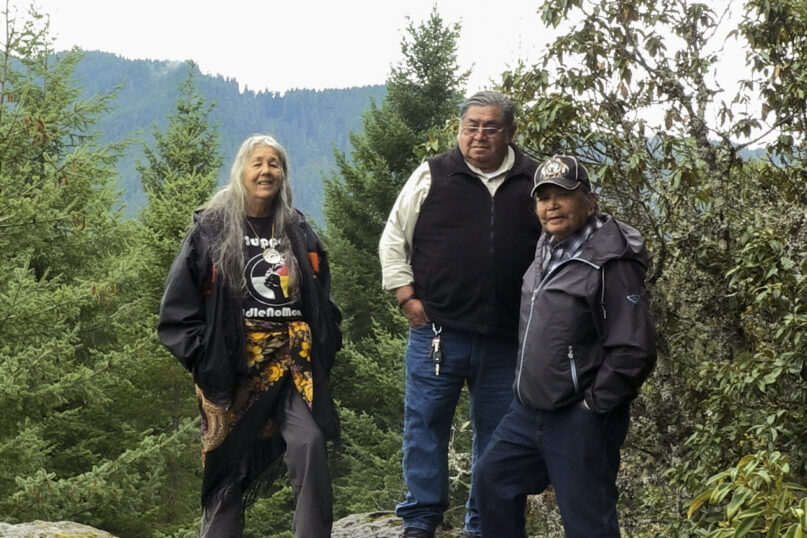PORTLAND, Ore. (AP) — The U.S. government has agreed to help restore a sacred Native American site on the slopes of Oregon’s Mount Hood that was destroyed by highway construction, court documents show, capping more than 15 years of legal battles that went all the way to the U.S. Supreme Court.
In a settlement filed with the high court Thursday, the U.S. Department of Transportation and other federal agencies agreed to replant trees and aid in efforts to rebuild an altar at a site along U.S. Highway 26 that tribes said had been used for religious purposes since time immemorial.
Members of the Confederated Tribes and Bands of the Yakama Nation and the Confederated Tribes of Grand Ronde said a 2008 project to add a turn lane on the highway destroyed an area known as the Place of Big Big Trees, which was home to a burial ground, a historic campground,d medicinal plants, old-growth Douglas Firs and a stone altar.
Carol Logan, an elder and member of the Confederated Tribes of Grand Ronde who was a plaintiff in the case, said she hopes the settlement would prevent the destruction of similar sites in the future.
“Our sacred places may not look like the buildings where most Americans worship, but they deserve the same protection, dignity, and respect,” Logan said in a statement shared by the Becket Fund for Religious Liberty, which represented the plaintiffs in their lawsuit.
The defendants included the Department of Transportation and its Federal Highway Administration division; the Department of the Interior and its Bureau of Land Management; and the Advisory Council on Historic Preservation.
The Federal Highway Administration and the Department of the Interior declined to comment on the settlement.
In court documents dating back to 2008 when the suit was filed, Logan and Wilbur Slockish, who is a hereditary chief of the Confederated Tribes and Bands of the Yakama Nation, said they visited the site for decades to pray, gather sacred plants and pay respects to their ancestors until it was demolished.
They accused the agencies involved of violating, among other things, their religious freedom and the National Historic Preservation Act, which requires tribal consultation when a federal project may affect places that are on tribal lands or of cultural or historic significance to a tribe.
Under the settlement, the government agreed to plant nearly 30 trees on the parcel and maintain them through watering and other means for at least three years.
They also agreed to help restore the stone altar, install a sign explaining its importance to Native Americans and grant Logan and Slockish access to the surrounding area for cultural purposes.
___
Claire Rush is a corps member for the Associated Press/Report for America Statehouse News Initiative. Report for America is a nonprofit national service program that places journalists in local newsrooms to report on undercovered issues.





